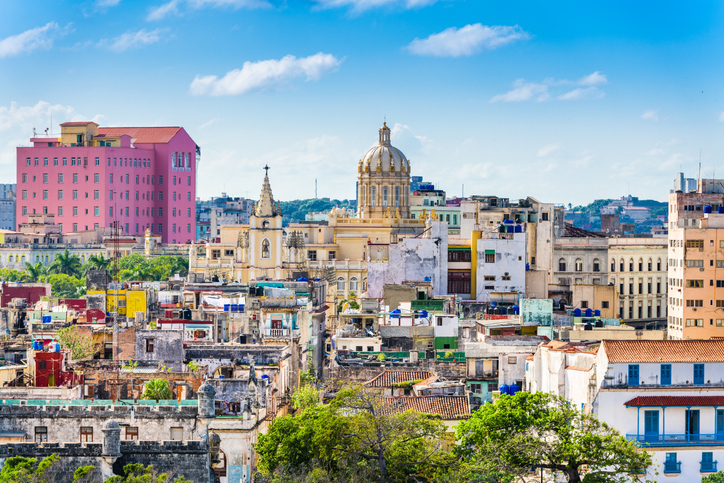Tourism to Cuba inched up to a new record this year, government officials said on Thursday, although the gain was largely due to greater arrivals on cruise ships, which analysts say contribute less than regular travelers to the island nation’s economy.
A boom in tourism to the Caribbean’s largest island over the last few years has helped offset weaker exports and a steep decline in aid from key ally Venezuela.
But even tourism took a hit in late 2017 from the devastation wrought by Hurricane Irma and tighter U.S. travel restrictions imposed by the Trump administration.
Tourism only started recovering in the second quarter this year, the Tourism Ministry’s commercial director, Michel Bernal, told a news conference in Havana’s sea-front Hotel Habana Riviera, built by U.S. mobster Meyer Lansky on the eve of Cuba’s 1959 revolution.
As a result, the growth in arrivals is expected to have slowed to 1.3 percent in 2018 from 16.8 percent last year, albeit reaching a new record of 4.75 million visitors – up nearly 60 percent from four years ago.
Arrivals by cruise ships likely grew by 48 percent, largely from the United States.
As of Dec. 13, the number of U.S. visitors was the same as in 2017, with growth in U.S. arrivals in 2018 expected to be around 1 percent, despite increased travel restrictions.
The number of total arrivals by plane, however, is expected to have dropped 6 percent – meaning fewer tourists stayed at Cuban hotels and bed-and-breakfasts.
Canada remained Cuba’s top tourist market, although the number of Canadian visitors is estimated to have fallen 2 percent to 1.1 million. Arrivals from Cuba’s main European markets — Britain, France, Italy, Spain and Germany — will likely have dropped between 10 and 15 percent.
“The markets that most worry us are the five main European markets where we will concentrate our main efforts next year,” Bernal said, adding that Cuba also wants to develop potential markets like China, Japan, India and South Africa.
He noted that the number of Cubans residing abroad jumped 17 percent to 585,600, although most of those would not be staying in hotels on their visits.
Tourism arrivals are expected to rise 7 percent next year to 5.1 million, he said.
Cuba has been busy building and renovating hotels in recent years to cater to a boom in tourism and brace for an even bigger one that would come with the lifting of the decades-old U.S. trade embargo.






